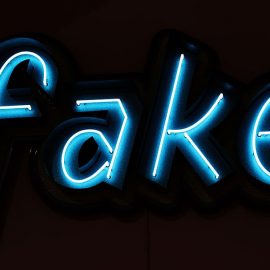

This article is an excerpt from the Shortform book guide to "Managing Oneself" by Peter F. Drucker. Shortform has the world's best summaries and analyses of books you should be reading.
Like this article? Sign up for a free trial here .
What’s Peter Drucker’s Managing Oneself about? What’s the key message to take away from the book?
Managing Oneself discusses how to take charge of your career to maneuver yourself into your ideal job. Peter Drucker, the author of many works on management theory, outlines the most important factors that he believes will help you succeed in your career efficiently. He asks that you manage yourself and take actions now that will lead to a flourishing career in the future.
Here’s our review of Managing Oneself by Peter Drucker.
About the Author
Drucker, who died in 2005, is referred to as the founder of modern management. A global leader in management theory and practice for over 60 years, he wrote 39 books and countless articles, including more than 30 essays in the Harvard Business Review. He also coined the term “knowledge worker,” and he considered the measurement and increase of the productivity of knowledge workers to be the next great challenge for managers.
Born in Austria, Drucker received a doctoral degree in Frankfurt and worked as a reporter in Germany before fleeing to England upon Hitler’s rise to power. He moved to the U.S. in 1937, later becoming a citizen, and taught at New York University and Claremont Graduate University, among other institutions.
In 1939, he published his first book, The End of Economic Man, an examination of totalitarianism that influenced Winston Churchill. He began writing about management with Concept of the Corporation in 1946, about his study of General Motors (GM). He followed up with The Practice of Management (1954), Managing for Results (1964), Drucker on Management (1971), and many more works, including his most famous book The Effective Executive (1966). He continued to publish until the early 2000s.
President George W. Bush awarded Drucker the Presidential Medal of Freedom in 2002 for his contributions to management theory. He also received a medal for services to the Republic of Austria, and Japan made him a member of the Order of the Sacred Treasure, an award the emperor gives to significant contributors to an important field. Drucker’s obituary in the New York Times noted that his ideas on management were so influential that a comment from him could change the way top corporate leaders operated.
The Book’s Publication
Publisher: Harvard Business School Publishing Corporation, 2008.
This summary is based on the 2008 version of Managing Oneself. The piece was originally published as an article in 1999, which was rerun in the Harvard Business Review in 2005. It was then published as a book in the Harvard Business Review Classics series.
Many of Drucker’s other works focus on improving management techniques. This makes Managing Oneself an unusual addition to the canon of Drucker’s work as in this work, he zooms out to look at the notion of careers as a whole. He also gives advice that’s applicable to all employees, regardless of where they appear on the management hierarchy.
Intellectual Context
Drucker had two significant intellectual influences in his life. The first was the Austrian economist Joseph Schumpeter, a friend of his father. Schumpeter educated Drucker about innovation and entrepreneurship, themes which he incorporated into his theories.
The second influence was the English economist John Maynard Keynes, whom Drucker heard give a lecture in Cambridge in 1934. Keynes’s influence on Drucker wasn’t as intentional, as he pushed Drucker to take a view on management starkly different from his own: “I suddenly realized that Keynes and all the brilliant economic students in the room were interested in the behavior of commodities, while I was interested in the behavior of people,” Drucker later wrote. Drucker therefore emphasized the role of the employee in determining the success of a business and asserted that workers are assets, not liabilities.
During Drucker’s most active period from the 1950s to the 1970s, many other books on management were more technical and subject-specific, giving them a smaller audience. In contrast, Drucker aimed to appeal to managers in any industry and any company. Although some of his works today seem to be stating the obvious, he was one of the first to share such ideas, which have been described as immortal.
In the 1990s, when Drucker wrote Managing Oneself, career advice guides were beginning to recognize that careers were flexible and that individuals may pursue several careers across a lifetime. Managing Oneself tapped into this zeitgeist by offering a long-term perspective on careers and giving advice on how to construct a second career before your first is even finished.
The Book’s Impact
Peter Drucker’s Managing Oneself was influential enough that, as noted, it appeared in a 2008 Classics Series of the Harvard Business Review, a collection of “seminal pieces” covering topics related to management, leadership, and life.
Reviews praised Drucker’s minimalist approach, as his advice distills the entirety of a career into just 55 pages. Other positive reviewers found Drucker’s structured and forward-looking approach to careers thought-provoking. Some said that the book should be required reading in the workplace, and one reviewer noted that, “If done correctly, this is the LAST ‘self-help’ book you’ll ever have to buy.”
However, other reviews noted that the piece lacked practical techniques to help the reader consistently apply Drucker’s advice to their own life. Additionally, some readers said the advice given is obvious and contains many tropes of career guides.
Commentary on the Book’s Approach and Organization
Throughout the book, Drucker poses a series of open-ended questions to stimulate the reader into thinking about their own career aspirations, such as, “How do I learn?” He also cites several examples, some of which are taken from his own career. This gives credence to his ideas and helps us to translate them into real life. In one instance, he outlines the importance of having compatible values with your workplace by explaining why he quit his successful job during the Great Depression: because it wasn’t aligned with his values.
The book is split into several sections, each covering a different aspect of self-management. This adds a smooth flow to the book, making it easy to read and absorb the information. However, some of the sections jump between one topic and another, and they aren’t listed in order of importance, which makes the logic occasionally challenging to follow.

———End of Preview———
Like what you just read? Read the rest of the world's best book summary and analysis of Peter F. Drucker's "Managing Oneself" at Shortform .
Here's what you'll find in our full Managing Oneself summary :
- Why the secret to building a successful career is managing yourself
- How to build a rewarding career where you can thrive
- How to have a second career that’s even better than your first






